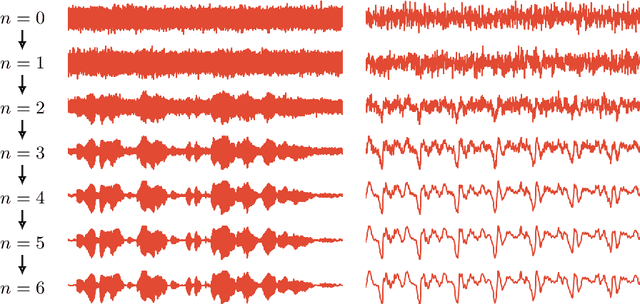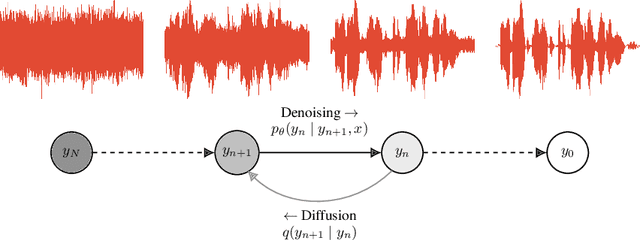WaveGrad: Estimating Gradients for Waveform Generation
Paper and Code
Sep 02, 2020



This paper introduces WaveGrad, a conditional model for waveform generation through estimating gradients of the data density. This model is built on the prior work on score matching and diffusion probabilistic models. It starts from Gaussian white noise and iteratively refines the signal via a gradient-based sampler conditioned on the mel-spectrogram. WaveGrad is non-autoregressive, and requires only a constant number of generation steps during inference. It can use as few as 6 iterations to generate high fidelity audio samples. WaveGrad is simple to train, and implicitly optimizes for the weighted variational lower-bound of the log-likelihood. Empirical experiments reveal WaveGrad to generate high fidelity audio samples matching a strong likelihood-based autoregressive baseline with less sequential operations.
 Add to Chrome
Add to Chrome Add to Firefox
Add to Firefox Add to Edge
Add to Edge